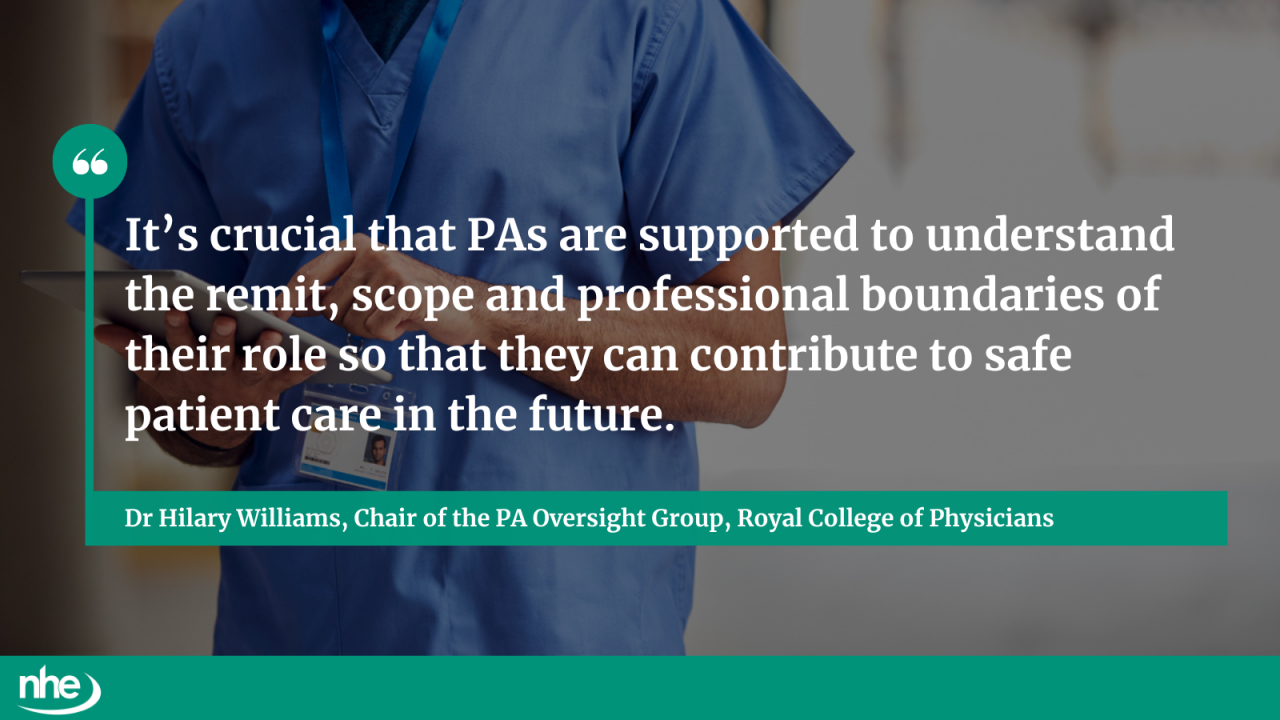The Royal College of Physicians (RCP) has released new interim guidance on the scope, supervision, and employment of physician associates (PAs) in medical specialties.
This guidance, developed by the RCP PA oversight group (PAOG), has been approved by the RCP Council and will serve as a crucial placeholder until the Leng review reports its findings in spring 2025.
The interim guidance addresses several critical areas, including the scope of practice for general internal medicine, supervision, and employment of PAs, and how PAs should communicate their roles to various stakeholders. The guidance will be reviewed with input from RCP fellows and members following the Leng review's publication.
Identifying the scope of PA’s practice and supervision, the RCP guidance states the following:
- PAs are to support, not replace, doctors and must have a nationally defined ceiling of practice.
- PAs should have a clearly defined role within the multidisciplinary team (MDT).
- PAs must not function as senior decision-makers or decide on patient admissions or discharges.
- Clinical supervision of PAs should be conducted by consultants, specialist, or associate specialist doctors, not resident doctors.
Alongside this, the guidance also outlines how PAs cannot prescribe medications, regardless of their prior healthcare background, and that they must clearly explain their role to patients, families, carers, colleagues, and supervisors, including details of their educational and clinical supervision.

Commenting on the guidance, RCP Chair of the PA oversight group Dr Hilary Williams, said:
“I want to thank everyone involved with the development of this interim guidance on scope and supervision for PAs, especially the authors and contributors who have put so much work into writing these documents. They have listened to the breadth and diversity of views of our fellows and members and learned from their expertise.
“It’s crucial that PAs are supported to understand the remit, scope and professional boundaries of their role so that they can contribute to safe patient care in the future. This guidance sets out a placeholder scope of practice for PAs and describes their role in the MDT while we await the findings and recommendations of the Leng review.
“The medical workforce remains under immense pressure, and it is time to refocus our attention on valuing our resident doctors. They deserve high quality training today to ensure they can become the expert physicians of tomorrow.”
In its submission to the Leng review, the RCP will advocate for a nationally agreed scope and ceiling of practice for PAs, a review of the growth projections for the PA role in the NHS Long Term Workforce Plan, and an assessment of how the PA role impacts training opportunities for resident doctors.
This interim guidance underscores the RCP's commitment to patient safety and the effective integration of PAs into healthcare teams, ensuring that PAs support physicians without overstepping their defined roles.
Image credit: iStock



















